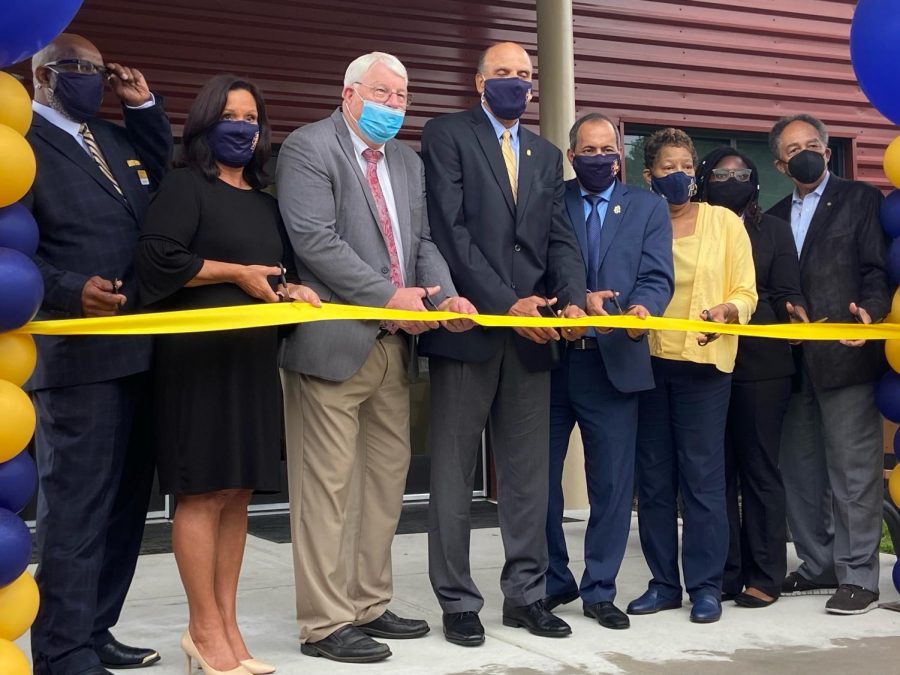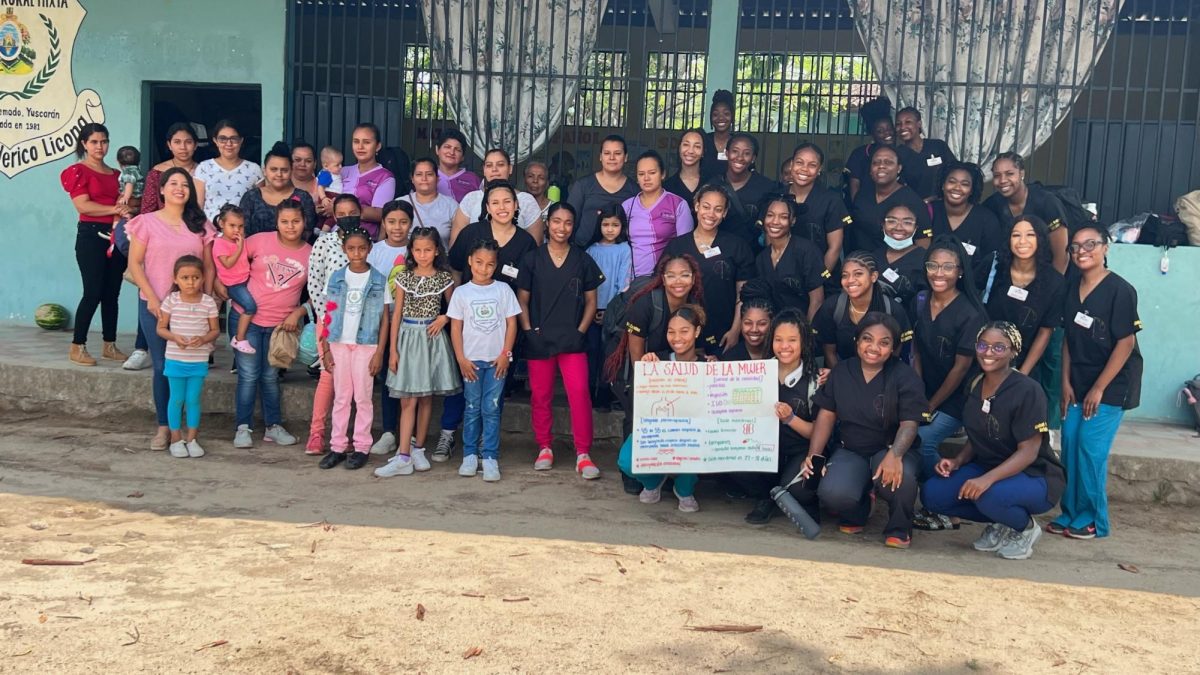In honor of the opening of the new Extension and Research Farm Pavillion, a ribbon ceremony was held at the University Farm on McConnell Road.
The 17,000 square foot pavilion includes an auditorium, laboratories, demonstration kitchen, a 50-person classroom and a 400-person conference room for the College of Agriculture and Environmental Sciences department (CAES).
According to WFMYNews2, the project is worth $5 million and it is funded by the USDA’s National Institute for Food and Agriculture. Local government officials, N.C. A&T CAES’ dean and representatives from the U.S. and N.C. Departments of Agriculture were present at the ribbon ceremony.
N.C. A&T and N.C. State, two land-grant universities, established a partnership in 2012, N.C. A&T- N.C. State Research Partnership. Their partnership helps with agricultural programs and supporting small-scale farmers in North Carolina. Dr. Richard Bonnano, the associate dean of the College of Agriculture and Life Sciences and extension director at NC State, is very appreciative of the partnership between NC State and N.C. A&T.
“NC State and N.C. A&T are partnered with cooperative extensions, all across North Carolina. At any time, we can share resources. It makes everything we do better.”
Tahirah Jones, junior animal science student and representative of CAES shared her thoughts on the department
“It is a privilege to be a student at the College of Agriculture and Environmental Sciences department…they definitely have our best interest at heart,” Jones said. “It is very hands-on and innovative advancement within our college, with the pandemic, we’ve been deprived for about a year and a half of any on-hands learning so this definitely sets the standard for production, laboratory studies and other services here.”
In 1904, the 492 acre farm was established, the facility used to provide food and milk for N.C. A&T’s cafeteria. With the addition of the farm pavilion, its purpose is to create a space for students, teachers, and researchers in the CAES department to build a relationship with local farmers and students can have more access to hands-on experience with their education.
Leon Moses Sr., N.C. A&T’s University Farm superintendent, explains how the University Farm is a pipeline of information for the local community. According to Moses, this year alone, the University Farm has given over 25,000 pounds of fresh vegetables to mainly local food pantries in East Greensboro.
“We now have a place [pavilion] where the community can come and engage with the farm because of our larger space,” Moses said. “When you look from a broader aspect, as far as research, we have an indirect impact by sharing our research with the community like how to grow vegetables, how to grow your own urban garden so that causes us to be a pipeline of information so they can start to do things themselves.
The facility will also be used for events such as Small Farms Week, annual Grassroots Leadership Conference and 4-H programs.
“This facility allows us to have research that is focusing on the small-scale farmers and their needs,” Dr. Rosalind Dale, associate CAES dean and Extension administrator said. “We certainly do our part at A&T, about 80 percent of our state, roughly 48,000 farmers, are small-scale farmers that are all throughout the Triad area and all across the state.”
The farm is the campus’ largest classroom and laboratory. The pavilion is a part of a master plan that includes the following prospective facilities for years to come: an amphitheater and an urban food complex.
The complex will showcase a business incubator, labs, commercial kitchen and a public creamery that will be ready by Sept. 2022.







